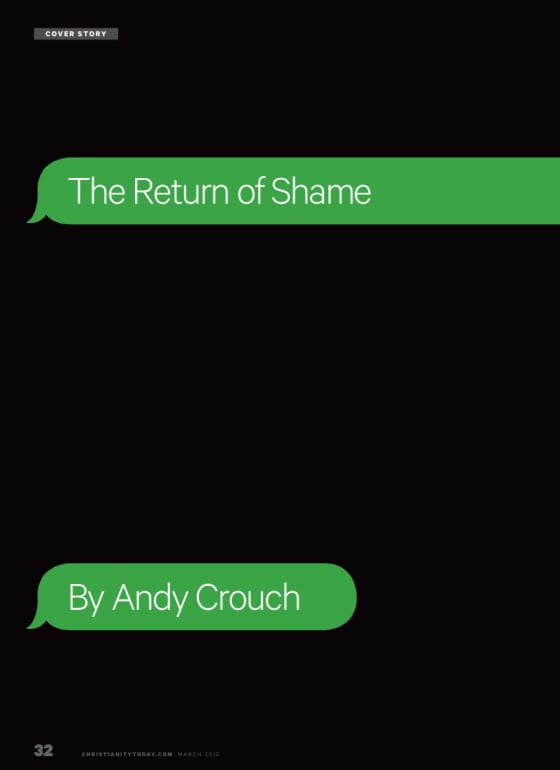Check out the latest issue of Christianity Today. The feature article is all about honor and shame!!
 In his excellent piece, Andy Crouch illustrates very well how honor & shame (H/S) particularly influence a Western context. What is most impressive is how balanced Crouch is when discussing H/S.
In his excellent piece, Andy Crouch illustrates very well how honor & shame (H/S) particularly influence a Western context. What is most impressive is how balanced Crouch is when discussing H/S.
Andy is also very gracious to spotlight and draw upon my work, whether in Saving God’s Face and on this blog. When he and I met last year, I was very impressed with how well versed he is on a variety of topics. Therefore, I’m honored and grateful that he would allow me to contribute to the conversation within his article.
A “Fame-Shame” Culture
The article coins a quite nice phrase that I will surely use in the future. Andy speaks of a “fame-shame” culture. He writes,
So instead of evolving into a traditional honor–shame culture, large parts of our culture are starting to look something like a postmodern fame–shame culture. Like honor, fame is a public estimation of worth, a powerful currency of status. But fame is bestowed by a broad audience, with only the loosest of bonds to those they acclaim.
Of course, I couldn’t agree more. In fact, I would add that a “fame-shame” culture is a poor substitute for an “honor-shame” culture. I won’t say more now. You’ll have to see the article to see more about how Andy contrasts these two cultures.
He rightly notes that “fame-shame” cultures have a collectivist (i.e. group-oriented) dimension. As a result, there are many moral implications that we have to take seriously.
In fame–shame culture, people yearn to feel included in the group, a state constantly endangered, fragile, and desperately in need of protection …
In a fame–shame culture, the only true crime is to publicly exclude—and thus shame—others. Talk of right and wrong is troubling when it is accompanied by seeming indifference to the experience of shame that accompanies judgments of “immorality.”
The last few sentences above are among my favorites in the article.
I think you will like how balanced the article is. It does not stay at an abstract level. Neither does it simply give a lesson in anthropology. Crouch lets the reader wrestle with the Bible’s teaching on honor-shame. Theologically, he explores the way God provides a remedy for shame.
I look forward to hearing your thoughts. What other questions would you raise after reading the CT article?
Forward the article to others, post it on Facebook or re-tweet it.
Invite others into the conversation so we can tease out further implications of honor-shame for reading the Bible and doing ministry.

















